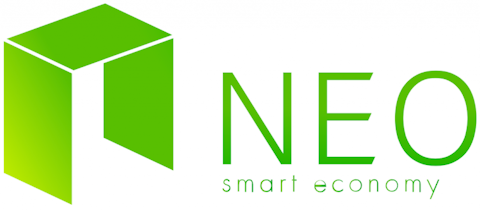The cryptocurrency boom has brought the blockchain technology in the spotlight and while many consider that investing in cryptocurrencies is highly risky, the consensus is that blockchain technology is going to be the biggest disruptor to many industries since the Internet. Nevertheless, while there are many big corporations, such as International Business Machines Corp. (NYSE:IBM), Maersk S/A, and Moneygram International Inc (NASDAQ:MGI), that are working on blockchain-based applications to facilitate their operations, there are hundreds, or maybe even thousands of startups that are developing their own projects based on blockchain technology, looking to strike gold. Because of the popularity of cryptocurrencies and the advancement of technology that allows the creation of new cryptocurrencies, many startups have launched their own tokens that have been sold to investors.
At the moment, there are over 1,500 cryptocurrencies, most of which are tokens that can be used within a blockchain-based ecosystem. These tokens are different from traditional cryptocurrencies, such as Bitcoin and Litecoin, because their value is not determined by the scarcity or utility, but rather represent an asset or utility within an ecosystem and their value is determined to the usability of the ecosystem. Because there are so many tokens that were offered for sale to investors and are currently trading on cryptocurrency exchanges, startups are seeking other ways to attract investors aside from the potential profitability of their projects and the subsequent appreciation of their tokens’ value. One of these ways is a promise to reap benefits while holding tokens, which is similar to the way companies pay dividends.
There are many ways how blockchain companies choose to reward their investors. For example, Fluz Fluz blockchain offers members of its platform create networks and receive cashbacks from purchases made by people within the networks. EXMO, a cryptocurrency exchange that is about to conduct a token crowdsale, went the more traditional way by offering holders of its tokens dividends generated from offering margin trading services.

Copyright: juliatim / 123RF Stock Photo
The majority of blockchain projects offer rewards in form of staking. Staking is a new technology on blockchain, also known as Proof-of-Stake, which is commonly used by cryptocurrencies that pay dividends. POS comes as an alternative to Proof-of-Work that is used on blockchains like Bitcoin, where members of the network have to solve complex cryptographical problems in order to validate transactions and add new blocks to the ledger, i.e. mining. Staking doesn’t require buying special hardware to get new coins. Instead the creator of the new block is chosen in a deterministic way and the network member with the largest number of coins gets the biggest chance of being chosen. Cryptocurrencies that pay dividends have to be kept in a special wallet that is compatible with the Point-of-Stake system and they have to reach a certain maturity to allow staking. Whenever a transaction takes place, a person is chosen based on its stake and it gets to sign the next block and gets the transaction fees in the process. In this way,
It should be mentioned that instead of investing in cryptocurrencies that pay dividends, there is a safer way to get dividends from cryptocurrencies, which is to invest in large companies that have exposure to the industry, such as the aforementioned International Business Machines Corp. (NYSE:IBM), which is working on several blockchain-based projects, or Moneygram International Inc (NASDAQ:MGI), which is exploring the use of Ripple blockchain to facilitate international money transfers.
Nevertheless, if you are set on investing in cryptocurrencies, we have compiled a list of seven cryptocurrencies that offer dividends, mostly through staking.
7. TenX
Mkt Cap: $201.34 million
TenX is a project that launched a cryptocurrency wallet and physical card that allows paying with cryptocurrencies at any store, even if it doesn’t support cryptocurrencies. The company is working with WaveCrest, a third party card issuer that was partnered with Visa Inc (NYSE:V) and Mastercard Inc (NYSE:MA), although at the beginning of January, Visa Inc (NYSE:V) terminated the relationship with WaveCrest, demanding that it closes all Visa cards. As a reward program, TenX distributes 0.1% of PAY tokens of purchases and periodically distributes 0.5% of the payment volume on the network in proportion to their stakes.

Pachai Leknettip/Shutterstock.com
6. GAS (NEO)
Mkt Cap: $411.70 million
Another token in our list of cryptocurrencies that pay dividends is GAS. GAS is a cryptocurrency token launched by NEO, a blockchain platform similar to Ethereum that focuses on China and offers smart contracts and decentralized applications. GAS coins are offered to holders of NEO coins based on the amount of NEO coins they hold in their wallets. One GAS coin currently costs $42.41 and holders of NEO coins can receive 0.1 GAS coin per year, which results in a return of roughly 3.73%, according to NeoToGas website.

5. Ark
Mkt Cap: $468.14 million
Ark platform is a collaborative system that allows bridging between blockchains and it has its own token, ARK. In the Ark ecosystem, which uses delegated Proof-of-Stake, coin holders get to vote for one of 51 active delegates that are forging the blocks and get rewarded with ARK coins, some of which they in turn distribute to their voters. The payout can be up to 10% of the staked coins and is made every couple of days.

Copyright: mikkolem / 123RF Stock Photo
4. KuCoin
Mkt Cap: $517.02 million
KuCoin’s KCS is also among cryptocurrencies that pay dividends. KuCoin is a cryptocurrency exchange launched in 2017 that has also conducted an ICO and sold its own token, KCS. KuCoin sold 200 million coins, but it plans to buy back half of that and keep the other half in existence. KuCoin rewards KCS holders by offering them 90% of the trading fees, with 50% being paid to KCS holders and 40% is offered as an invitation bonus to users that recommended others to trade on KuCoin. If an invited user is trading on KuCoin, the person that invited them gets a portion of their trading fees and a smaller portion of fees from users that were invited by the first invitee (indirectly invited users).

Pixabay/Public Domain
3. Waves
Mkt Cap: $653.39 million
Waves is an open-source blockchain platform that allows users to launch their own cryptocurrency tokens, similar to Ethereum. Users can create, transfer and exchange tokens on a peer-to-peer basis and pay transaction fees in the WAVES token. Waves uses a proof-of-stake system under which holders of tokens receive a part of the transaction fees to validate a new block. A user must have at least 1000 WAVES to qualify for the POS rewards.

Pixabay/Public Domain
2. OmiseGO
Mkt Cap: $1.58 billion
OmiseGO is a blockchain platform that allows digital payments and is used extensively in several Asian countries. At the moment, OmiseGO runs on Ethereum, but it plans to launch its own blockchain sometime this year. Once launched, OmiseGO blockchain will use Proof-of-Stake system to validate transactions, allowing holders of its native OMG tokens to receive a part of the fees.

Pixabay/Public Domain
1. Lisk
Mkt Cap: $3.42 billion
Lisk is a public blockchain platform that allows running decentralized blockchain apps. Lisk started as a fork of Crypti and conducted an ICO in 2016. Lisk aims to allow every blockchain app to run as its own sidechain that is separate from the main blockchain. It uses a Delegated-Proof-of-Stake system, which allows 101 delegates to actively forge new blocks and secure the network. Delegates get voted by holders of LSK tokens and they get rewards in form of 5 LSK per block (the reward is reduced by 1 LSK every 3 million blocks, which take around 1 year). The forging rewards are equally distributed through all 101 delegates, which in turn share some of the reward with their voters.

Copyright: Elnur / 123RF Stock Photo
These are seven cryptocurrencies that pay dividends. Due to the popularity and simplicity of the new Proof-of-Stake system, their list may be higher, as more blockchains adopt it.
Disclosure: none





